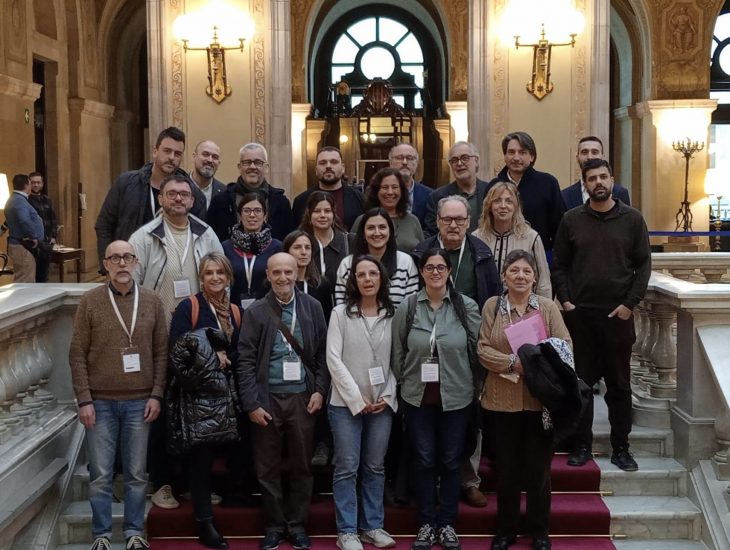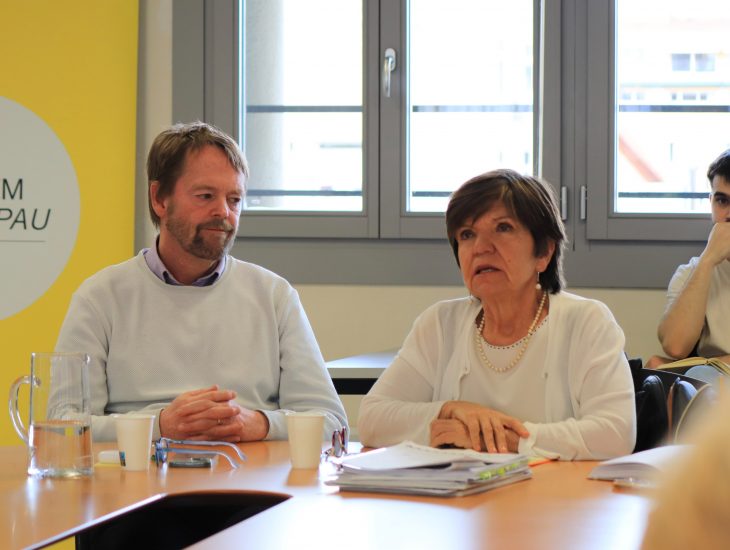Last Thursday, the ICIP library hosted the presentation of the Report on the Effective Status of the Implementation of the Colombian Peace Accord, edited by the Kroc Institute for International Peace Studies of the Notre Dame University, a US research centre dedicated to peace investigations and specialised in the comparative follow-up of peace processes and their implementation.
The event was organised by Borja Paladini, representative of the Kroc Institute in Colombia and Barometer Initiative coordinator for the follow-up of the implementation, and was attended by the directors of ICIP and the Catalan Agency for Development Cooperation, Tica Font and Carme Gual, respectively.
This is the first public report on the status of the implementation of the Colombian Peace Accord, signed in November 2016 between the Colombian government and the FARC militias, analysing 558 observable dispositions or commitments (between December 2016 and August 2017) from cross-perspectives: human rights, gender, ethnical and territorial. The result is a qualitative and quantitative analysis, as well as a comparative study of 34 peace accords signed worldwide which were objects of study of the same Kroc Institute. In its general conclusions, the report states that the implementation of the commitments, agreed between the Colombian government and FARC, is being addressed in 251 of the dispositions studied (at different levels), some 45% of the total number, and that this implementation is going through a process of dialogue and negotiation between both parties. For the remaining 55%, implementation has not started yet. The work also concludes, as explained by Borja Paladini, that “the implementation is not stagnated, but is moving forward, each month we see progress, despite the fact it does not meet the expectations of both parties, or those of the people.”
In this context, Paladini states that the construction of peace in Colombia can be seen from two perspectives: one being more positive, the other rather negative. From the positive side, he highlights the end of the armed conflict (ceasefire and abandonment of weapons); mechanisms for implementation of the accord which are already effective, progress at institutional level and in the amnesty for prisoners; and an implementation rhythm which is higher than in other peace accords. On the negative side, the report highlights a lack of political reform as well as in the creation of a Special Jurisdiction for Peace; an approach, focusing on gender and ethnical aspects, is missing; the relative paralysis with respect to the point in the accord, referring to the distribution of land; and a lack of effectiveness in the deployment of guarantees for security and protection. In this sense, Paladini states that “the killings of leaders and combat veterans continue, and people in the territories don´t feel any safer than before, which is a reason for concern.”
To conclude, Paladini claims that there are “strong bases” for the construction of peace in Colombia, but “we need to respond to the existing concerns, because the alarm signal could lead to a gridlock in the peace process, since the implementation processes of the accords are extremely fragile.” As such, the representative of the Kroc Institute in Colombia considers that “peace needs to be understood as something which is built from within the territories” and that “we need to broaden the scope of peace for the population in general, especially for the collectives which are most vulnerable and most affected by the violent conflict.”
05.01.2018



